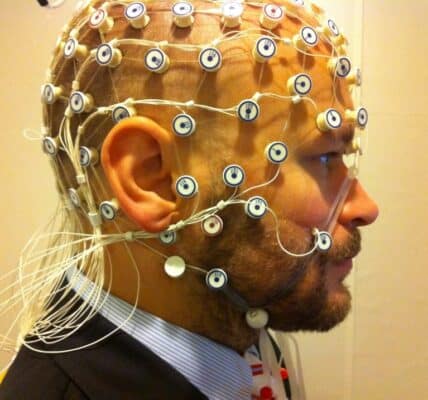Avatar-Based Cognitive Behavioral Therapy for Substance Use Disorders

Carolyn Easton, Ph.D., is at an interesting intersection in her career. The award-winning psychiatrist is a specialist in addiction research and treatment. Today, she is also at the forefront of the development of digital therapeutics for the treatment of addiction, trauma, behavioral health problems, and comorbidities (multiple disorders simultaneously).
Dr. Easton is the Academic Division Chief in Addiction Psychiatry and the Director of Digital Therapeutics at the University of Rochester Medical Center. She is collaborating with researchers at the Rochester Institute of Technology in the development of RITch®CBT, an “avatar assisted digitized platform to assess and treat addiction and family violence.” Dr. Easton recently sat down for an interview with Jeff Koslofsky from the University of Rochester News Center to discuss RITch®CBT.
RITch®CBT is an app that runs on Apple iPads and iPhones. It uses “cognitive behavioral therapy (CBT) to teach adaptive coping skills to patients,” says Dr. Easton. Based on research published in 2018, users prefer an avatar coach to a human coach. Dr. Easton further quantified what type of avatar users prefer and what sorts of traits are most desired. She explains the advantages of using an avatar coach:
The avatar can interact with patients, practice coping skills with them, and provide rewards and affirmations, hopefully creating a more positive experience.
Research from Dr. Reinout W. Wiers’s book, A New Approach to Addiction and Choice, which we have been summarizing here at AddictionNews, confirms the value of offering positive rewards and regular affirmations to keep the recovering patient engaged and on track. Dr. Wiers found that working memory training did not lead to lifestyle changes but goal-management training did transfer from digital delivery to reduced drinking. One key, he noted, was feedback, “[W]hich shows that you are making progress, which is motivating for the confidence in recovery.”
Asked why the use of avatar coaches, Dr. Easton replied:
Patients find the platform engaging and non-threatening, often preferring it over traditional therapy models.
Dr. Easton is also involved in the development of wearable technology that can monitor bodily functions and integrate with RITch®CBT to provide just-in-time interventions at the moment of temptation. “[W]earable technology [is] designed to inform the continuous screening and monitoring of behavioral health and addiction symptoms,” says Dr. Easton. “The tool personalizes therapy based on the patient’s real-time feedback.”
Finally, AI is used to interpret the signals from the wearable device and recommend interventions delivered by RITch®CBT or by a therapist or medical professional. It could be as simple as a vibrating watch to remind you to be careful, as complex as a prescription for a pharmacological intervention.
Dr. Easton has a track record of using passive technology to monitor vital statistics. She was part of a team at the Rochester Institute of Technology that won a Catalyst Award in 2020 for the development of a smart toilet seat. The Heart Seat, as it’s now called, uses “high-tech sensors embedded on its surfaces to detect heart rates, blood flow, and oxygenation, with the potential to provide near real-time information to physicians about patient status,” according to an article in Rochester Institute of Technology News.
To learn more about Dr. Easton’s work, including a demonstration of the RITch®CBT app, check out the video presentation she made last year on YouTube. We’ll continue looking at some of the technological treatments for addiction recovery this week on AddictionNews.
Written by Steve O’Keefe. First published September 17, 2024.
Sources:
“Caroline Easton: Integrating AI and compassion in addiction therapy,” University of Rochester News Center, September 11, 2024.
“Avatar and technology assisted platforms in the treatment of co-occurring addiction and IPV among male offenders,” Advances in Dual Diagnosis, August 2018.
A New Approach to Addiction and Choice: Akrasia and the Nature of Free Will, by Reinout W. Wiers, to be published by Routledge in 2025.
“Research team wins Catalyst Award in first year of international challenge,” Rochester Institute of Technology News, October 23, 2020.
Image courtesy of Rochester Institute of Technology, used under Fair Use: Commentary.




